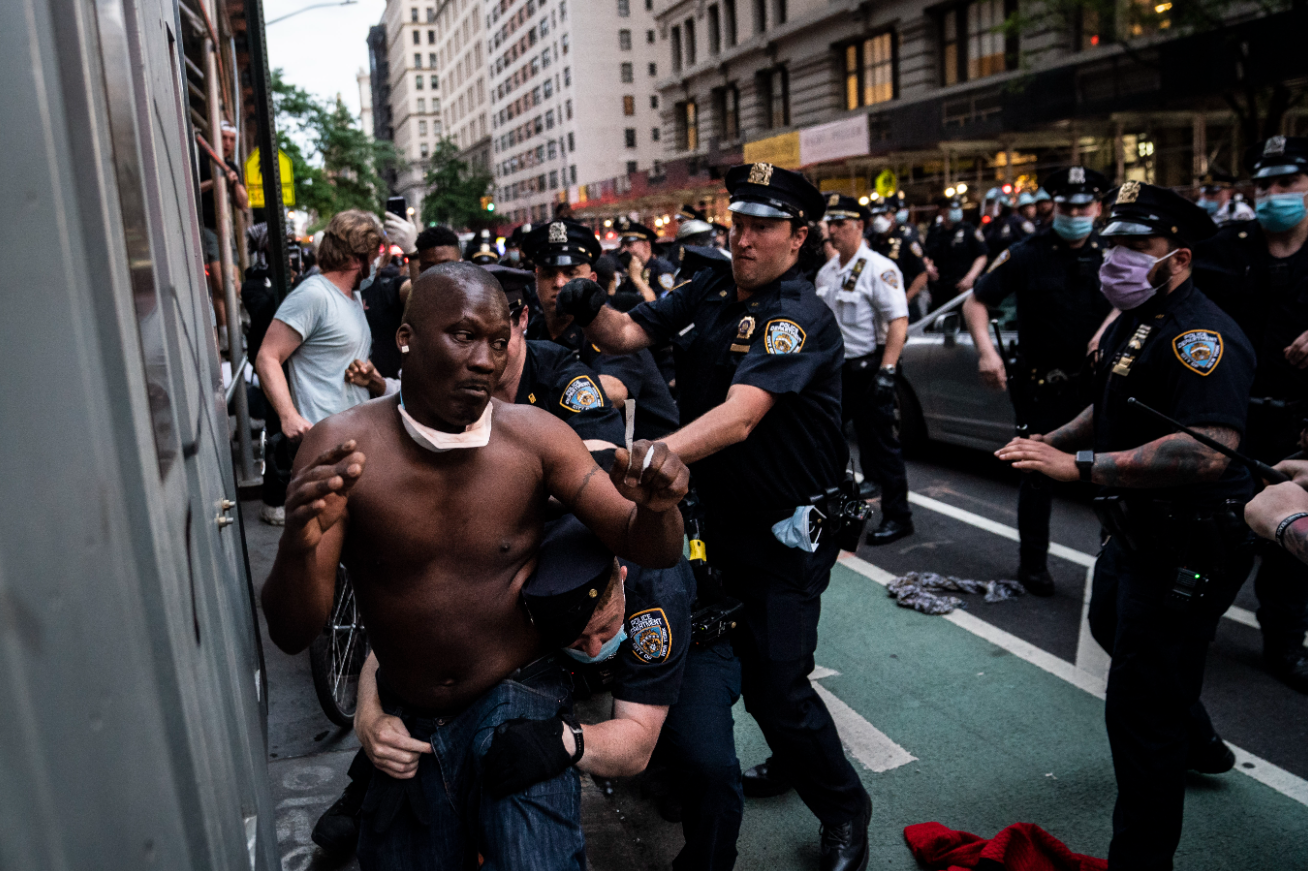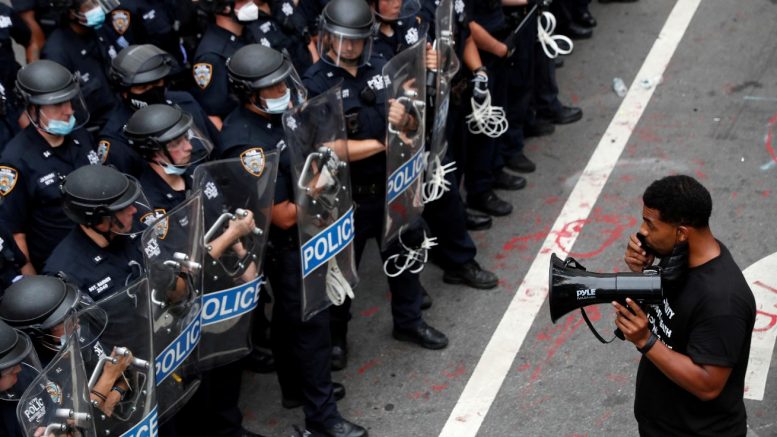Systemic racism affecting the African-American population permeates American law enforcement and criminal justice systems, highlights a report presented by the United Nations International Independent Expert Mechanism on Advancing Racial Justice and Equity in Policing. UN experts call on US authorities to immediately strengthen efforts to reform these structures.
Dozens of evidence
Compiled following an official visit by Mechanism members to the United States earlier this year, the report drew on testimony from 133 victims, visits to five detention facilities, and meetings with civil society representatives and a range of government and police agencies in various cities, including DC, Atlanta, Los Angeles, Chicago, Minneapolis and New York.
One of the important findings of the Mechanism’s experts was that in all the cities visited, they encountered many heart-warming stories of how victims are in desperate situations and unable to obtain justice or compensation for the harm they have suffered. Tracy Keesey, one of the experts, expressed concern about this systemic problem, which, in her opinion, requires a comprehensive and systematic approach. She stressed the importance of joint efforts by all stakeholders, including police authorities and police unions, in combating widespread impunity and violations of citizens’ rights.
Consequences of the slavery era
The report emphasizes that American racism is a continuation of the legacy of slavery, the slave trade and the century of apartheid that followed the abolition of slavery. Today, racism remains a pressing issue in the country, manifesting itself in the form of racial discrimination, killings by law enforcement, and numerous human rights violations.
The report found that black citizens in the United States experience police violence at three times the rate of their white compatriots and are incarcerated at 4.5 times the rate. Over the course of a year, only one percent of police killings are prosecuted.
The report warns that unless US rules on the use of force are changed to reflect international standards, killings will continue to occur.
Structural weaknesses
The report’s authors rejected the “black sheep” idea, arguing that these were not random incidents but systemic problems. Juan Mendez, an expert with the Mechanism, said there was compelling evidence that abusive behavior by individual police officers was part of a larger pattern of threat. He emphasized that law enforcement and criminal justice institutions in the United States reflect and continue to propagate the values, attitudes and stereotypes of American society and its institutions, and that their reform is necessary.
Revision of the methodology
The report emphasizes that armed police should not automatically become the first line of response to all social problems in the United States, including crises related to mental health, homelessness, traffic or school discipline. The report puts forward the need to change the approach to policing and consider alternative methods of responding to different events.

Discrimination on the basis of race in policing
“In our meetings with police officers, we have repeatedly heard concerns about the impact of racism and racial discrimination in police departments on the mental health of officers, as well as excessive workload,” Kesey said. He noted that law enforcement officers can be expected to observe the principles of respect for the rights of others only if these principles are observed within their own team. The report’s authors call on police agencies to actively address issues of systemic racism, especially in the context of black law enforcement officers, and to examine issues of white supremacy within these structures.
Human rights violations
The report highlights serious human rights violations, such as the sentencing of African-American children to life in prison, the use of chains to shackle pregnant women during childbirth, and the prolonged detention of individuals in solitary confinement for ten years. It is also noted that some African Americans are denied the right to vote even after serving their sentences, and others are forced into forced labor in plantation prisons, which constitute a modern form of slavery.
The report’s experts not only criticize the widespread use of incarceration and criminal justice in the United States, but also highlight the “dismaying overrepresentation of African Americans” among those subjected to these measures. They conclude that it is part of a racist criminal justice system and requires comprehensive reform.
Expert suggestions
The report makes 30 recommendations intended to be applied across the United States at all levels of jurisdiction, covering more than 18,000 police agencies in the country. Importantly, the report’s authors also identified positive best practices that have been successfully implemented at the local and federal levels and acknowledged the efforts that the current administration and some local governments are making to address this issue.
“We encourage the dissemination of best practices in other regions of the country. We look forward to further cooperation with the United States to implement these recommendations,” Mendez said.
The Independent International Expert Mechanism on Promoting Racial Justice and Equality in Policing was established in July 2021 by the Human Rights Council to review the situation and develop appropriate recommendations. The main focus of this mechanism is to ensure access to judicial protection for people of African descent who have been victims of police actions.
Global independent expert mechanism
An international, independent peer review mechanism dedicated to advancing racial justice and equality in the context of policing was established by the Human Rights Council in July 2021. Its main task is to study the situation and develop appropriate recommendations, including ensuring access to judicial protection for people of African descent who have been victims of police actions.

